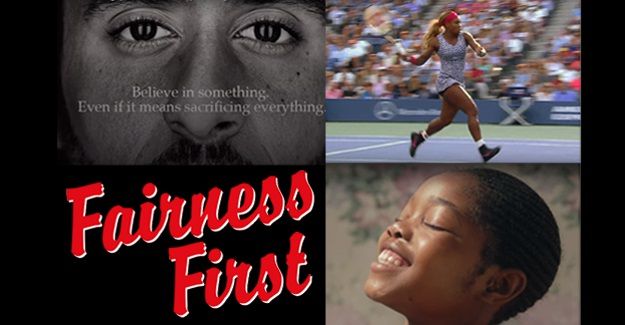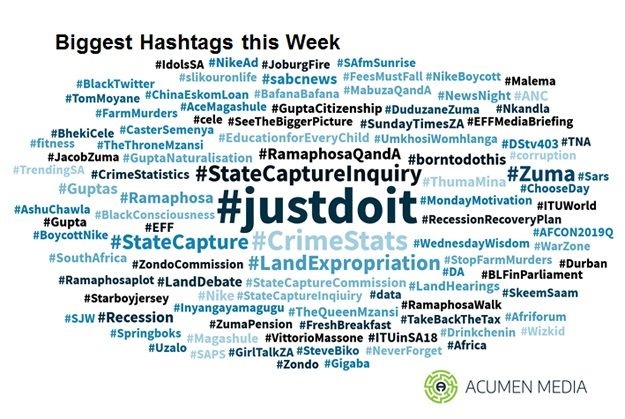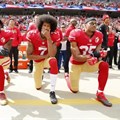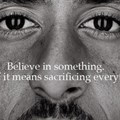#FairnessFirst: How Nike inspires others to 'just do it' with commodity activism

While there’s lots of money in both, there’s no denying it’s tough in advertising, and it’s tough in sport. Put the two together and you’ll understand the difficulty of making an effective ad for a sporting brand that appeals to your target audience.
The sport of advertising
Nike proves it’s got what it takes to do just that with its current campaign featuring sports stars Kaepernick, Williams and Semenya, all of whom have faced discrimination at some stage.
The Guardian explains that the ad featuring Kaepernick as the face of the new "Just Do It" campaign first aired in the NFL season opener:
The conservatives who didn’t like the ad went so far as to respond with #justburnit, a move that could have turned ugly for the brand, fast.
Instead, Nike handled that with grace and wit, spawning a new branch of fans:
Effect: From sport underdogs to superheroes
So, while generating massive support for the brand, the resulting ads have also turned those underdogs into superheroes.
You can take the superhero out of her costume, but you can never take away her superpowers. #justdoit pic.twitter.com/dDB6D9nzaD
— Nike (@Nike) August 25, 2018
Nike stood up for Serena Williams when the French Open banned her black catsuit – which she wore for medical reasons – on the grounds that it is ‘disrespectful to the game of tennis’.
And that’s not just on a global scale – South Africa loves the campaign, too.
Andy Rice listed the Kaepernick version as his advertising hero of the week on his regular slot with Bruce Whitfield on Cape Talk’s The Money Show:
And the summary of Acumen Media’s latest Media Hit Parade seven-day analysis of SA media as at 14 September 2018, states: the “international ad campaign for #Nike made a huge impact in SA, largely due to #CasterSemenya.”
So much so that #JustDoIt was the most popular hashtag of the week – beating out top headline grabbers, #CrimeStats and #LandExpropriation.

It's easy to see why...
Nike’s ‘Just do it’ campaigns have therefore established a blueprint for what sincere, unpretentious alliance actually looks like, while also reminding the world that the ‘underdogs’ are, in fact, on top, despite the exasperating opinions of naysayers.
Cue commodity activism
That’s why Vox calls it ‘commodity activism’:
Nike has a history of connecting with politics as part of its branding, and while the company is not uncontroversial, openly advocating for political stances hasn’t ruined the brand. Brand culture creates a context within which consumer participation is not simply (or even most importantly) indicated by purchases, but by brand loyalty and affiliation, linking brands to lifestyles, politics, and social activism.Best of all, the popularity of ads and fact they're being seen by so many is sparking further debate on issues of inclusion and equality in sport in mainstream media.Nike knew what it was doing when it decided to sponsor Kaepernick; it knew perfectly well that the ad would enrage some consumers who have been vocal about their anger around NFL players kneeling in protest.
Our own SA media expert export Trevor Noah discussed sexism in sports following one of Serena’s most recent struggles:
Inspiring a new generation to just do it
Each ad has also left the world with fiery new words to live by.
- From Kaepernick’s ad: “Believe in something. Even if it means losing everything.”
- From Williams’ ad: “It’s only a crazy dream until you do it.”
- From Semenya’s ad: “Too fast? Too bad. I was born to do this.”
Hear, hear. That’s what I call true advertising bravery. Share your comments below!
Read more
Colin Kaepernick: from kneeling quarterback to Nike poster boy: The Guardian
Nike, Colin Kaepernick, and the history of “commodity activism": Vox
Why Caster Semenya’s Excellent Nike Ad Is Worth Every Second Of Praise: Marie Claire














